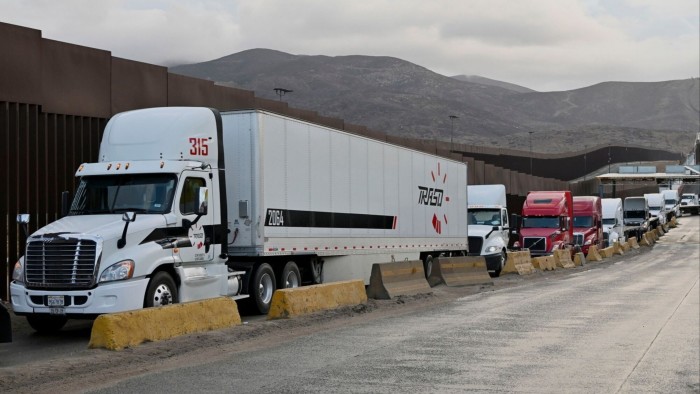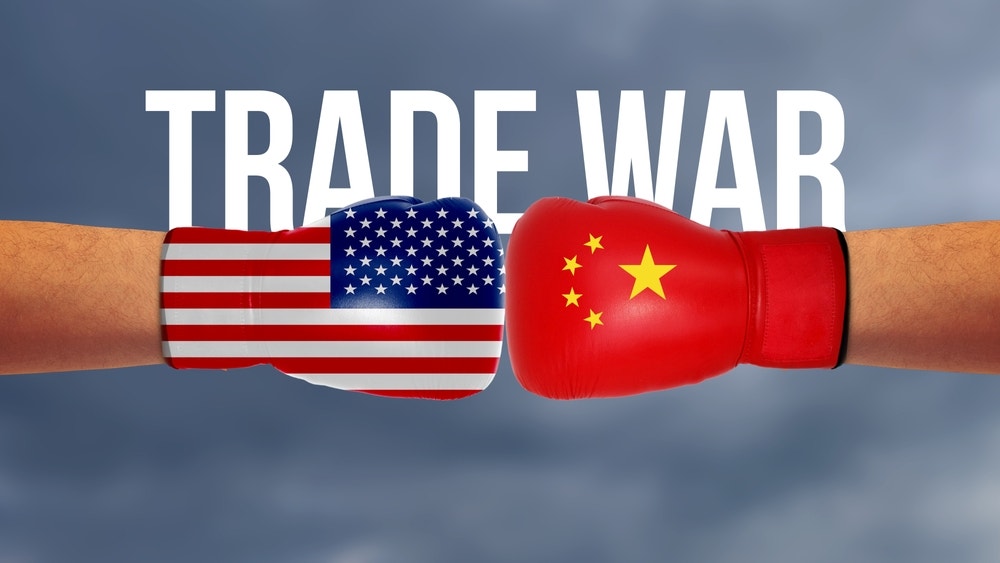Unlock the White House Watch newsletter for free
Your guide to what the 2024 US election means for Washington and the world
Donald Trump has fired the first shots in what threatens to become a devastating trade war. The US president’s tariffs on Mexico, Canada and China will deliver an immediate shock to the North American and world economies. They imperil decades of progress towards economic integration that has boosted US and global prosperity. One absurdity is that these measures are entirely unprovoked in trade terms; they are being used as a coercive tool to further Trump’s domestic political agenda and extract concessions from American neighbours that may be beyond their power to give. Another is that the US will be one of the main victims — in the resulting harm to its own economy and its standing in the world.
The returning US president has touted various illusory explanations for his love of tariffs. They will, he says, restore America’s industrial base, replace income tax and pay off US debt. The ostensible motive for his tariffs this weekend is instead to curb the “major threat of illegal aliens and deadly drugs” including fentanyl. Trump’s threat of sanctions had, it is true, already prompted steps from Canada and Mexico to reinforce their borders. But these would no doubt have continued had the president chosen to stay his hand. And there are practical limits to what else they can do — especially Canada, source of only a fraction of the irregular immigration or fentanyl that crosses from Mexico.
The legal pretext for Trump’s move is questionable, too. He made use of the International Emergency Economic Powers Act, an executive authority that enables him to respond to extraordinary economic or security threats. Yet that law has not previously been used to enact tariffs. The courts and Congress ought to block them.
If they do not, the damage will be severe. Trump’s tariffs alone will quickly feed into higher US inflation and reduce growth. The justifiable retaliation will amplify the effects. Trump appears to be gambling that since his measures will hit Canada and Mexico even harder, given their greater dependence on trade than America, they will quickly climb down. But the US president is not just challenging the trade basis of their prosperity but provoking their pride as sovereign nations.
The unravelling of North American free trade and supply chains built up over decades will deal a severe blow to both US consumers and corporate America — especially oil refining, automobile production, pharmaceuticals and agriculture. Trump’s actions on China are less dramatic but look like a modest downpayment on more extensive plans to come. Together, the three countries account for almost half of US imports. The estimated $100bn in additional tariff duties will surely be dwarfed by the economic cost.
The harm to American diplomatic power is no less profound. From the 1980s, both Canada and Mexico set aside decades of scepticism to make a strategic bet on free trade with the US, culminating in the Nafta deal of 1994. The economic benefits, especially to Canada, have been plentiful. Both were coerced by Trump in his first term to renegotiate that deal. That the president is now riding roughshod even over the revised deal, the USMCA, sends a message America’s word cannot be trusted. Canada and Mexico should not leave Trump’s moves unanswered, but their response needs to be creative, co-ordinated and selective. Chrystia Freeland, Canada’s former finance minister running to replace Justin Trudeau as prime minister, has proposed tariffs that would affect key constituencies supporting the US president, such as Elon Musk’s Tesla vehicles.
Yet the trade war is symptomatic of a larger issue in Trump’s America. The president alone decides which issues are important, exaggerates the diagnosis, and chooses the medicine. As with his attempts to impose his own priorities by firing federal workers and freezing grants, the tools are often blunt. His trade war threatens to be disastrous, but the chaos will not end there.


